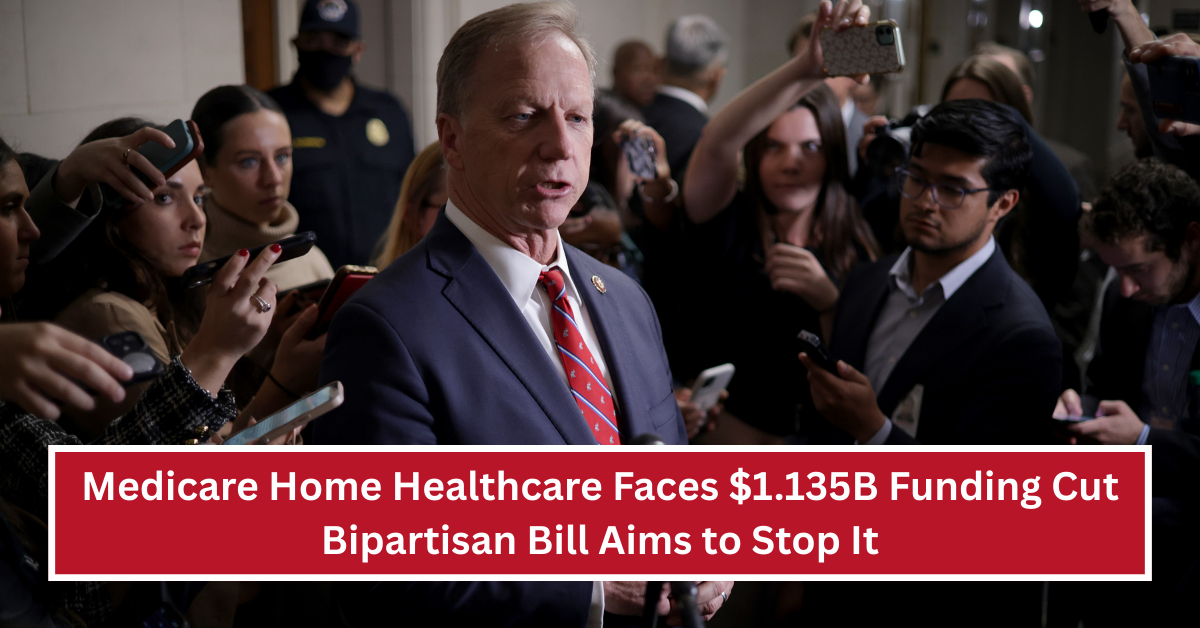Medicare home healthcare providers are currently facing a significant funding cut of $1.135 billion. This cut could severely impact the quality and availability of healthcare services provided to elderly and disabled individuals in their homes. The reduction threatens to strain resources at a time when home healthcare is becoming increasingly important, especially for older adults who prefer to stay in familiar surroundings rather than moving to hospitals or care facilities.
In response, lawmakers from both political parties have come together to introduce a bipartisan bill aimed at stopping this rate reduction. This move reflects the urgent need to protect vital healthcare services and ensure that home healthcare providers can continue to deliver safe and reliable care. Understanding these changes is crucial, especially for families depending on Medicare services for their loved ones.
What Is Medicare Home Healthcare?
Medicare home healthcare provides medical and supportive services to people who are homebound due to illness, age, or disability. These services include nursing care, physical therapy, and assistance with daily activities, allowing patients to recover or manage chronic conditions at home. It is a vital program, especially for seniors who prefer to avoid hospital stays or nursing homes whenever possible.
By offering personalized care at home, Medicare home healthcare promotes independence and comfort for patients. It also helps reduce hospital readmissions and healthcare costs overall. However, the funding cut poses a risk to the sustainability of these essential services.
Why Is the Funding Cut Happening?
The $1.135 billion funding cut comes from adjustments to Medicare payment rates. The Centers for Medicare & Medicaid Services (CMS) regularly updates payment policies based on budget estimates and policy priorities. This particular reduction is part of cost-saving measures intended to balance the federal budget and control healthcare spending.
However, many experts believe that cutting funds for home healthcare is short-sighted. Reducing payments to providers could lead to fewer services, lower quality of care, and difficulty in attracting skilled healthcare workers. This is especially concerning as the population ages and demand for home care continues to grow.
Impact on Patients and Providers
For patients, the funding cut may result in longer wait times, limited access to necessary therapies, and reduced caregiver support. Home healthcare providers might struggle financially, forcing some to close or limit the services they offer. This can leave many seniors and disabled individuals without adequate care, increasing reliance on more expensive and less comfortable alternatives like nursing homes or hospitals.
Healthcare providers have also expressed concerns about workforce shortages. Lower reimbursement rates could mean less money to pay nurses and therapists competitive wages, leading to staff shortages and burnout. This could hurt the quality of care and patient satisfaction.
About the Bipartisan Bill
The bipartisan bill introduced by lawmakers aims to halt the scheduled funding cut and stabilize Medicare home healthcare payments. Sponsored by members of both parties, the legislation reflects broad recognition of the importance of maintaining strong home healthcare services.
The bill seeks to ensure that providers receive fair reimbursement rates so they can continue offering high-quality care without disruption. It also highlights the need for sustainable funding models that adjust payment rates in response to inflation and the real costs of care.
Why Bipartisan Support Matters
Bipartisan support for this bill is critical because healthcare funding decisions often face political challenges. When leaders from different political backgrounds work together, it increases the chances of passing laws that benefit a wide range of people.
In this case, the cooperation signals that protecting home healthcare transcends party politics. Both Democrats and Republicans recognize the importance of keeping Medicare home healthcare accessible and reliable for millions of Americans.
What Happens Next?
The bill will need to pass through committees and both houses of Congress before it can become law. Supporters hope that public awareness and advocacy from patients, providers, and families will help move the bill forward.
Meanwhile, Medicare home healthcare providers and patients are closely watching the progress of this legislation. If the funding cut goes ahead, it could mean big changes in how home healthcare operates and the kind of care patients receive.
What You Can Do
If you or a family member rely on Medicare home healthcare, it’s important to stay informed. You can support the bipartisan effort by contacting your local representatives and expressing your concerns about the funding cut. Sharing stories about how home healthcare has made a difference can help lawmakers understand the real impact of their decisions.
Additionally, following news updates and trusted healthcare organizations online will keep you notified about any changes or opportunities to take action.
Final Thoughts
The proposed $1.135 billion funding cut to Medicare home healthcare is a serious challenge to an essential service. Thankfully, a bipartisan effort is underway to protect these vital programs and ensure that home healthcare providers can continue to care for those who need it most.
Whether you are a patient, caregiver, or just someone interested in healthcare issues, understanding this situation is important. Together, we can help support policies that provide quality care and respect the dignity of older adults and people with disabilities.




